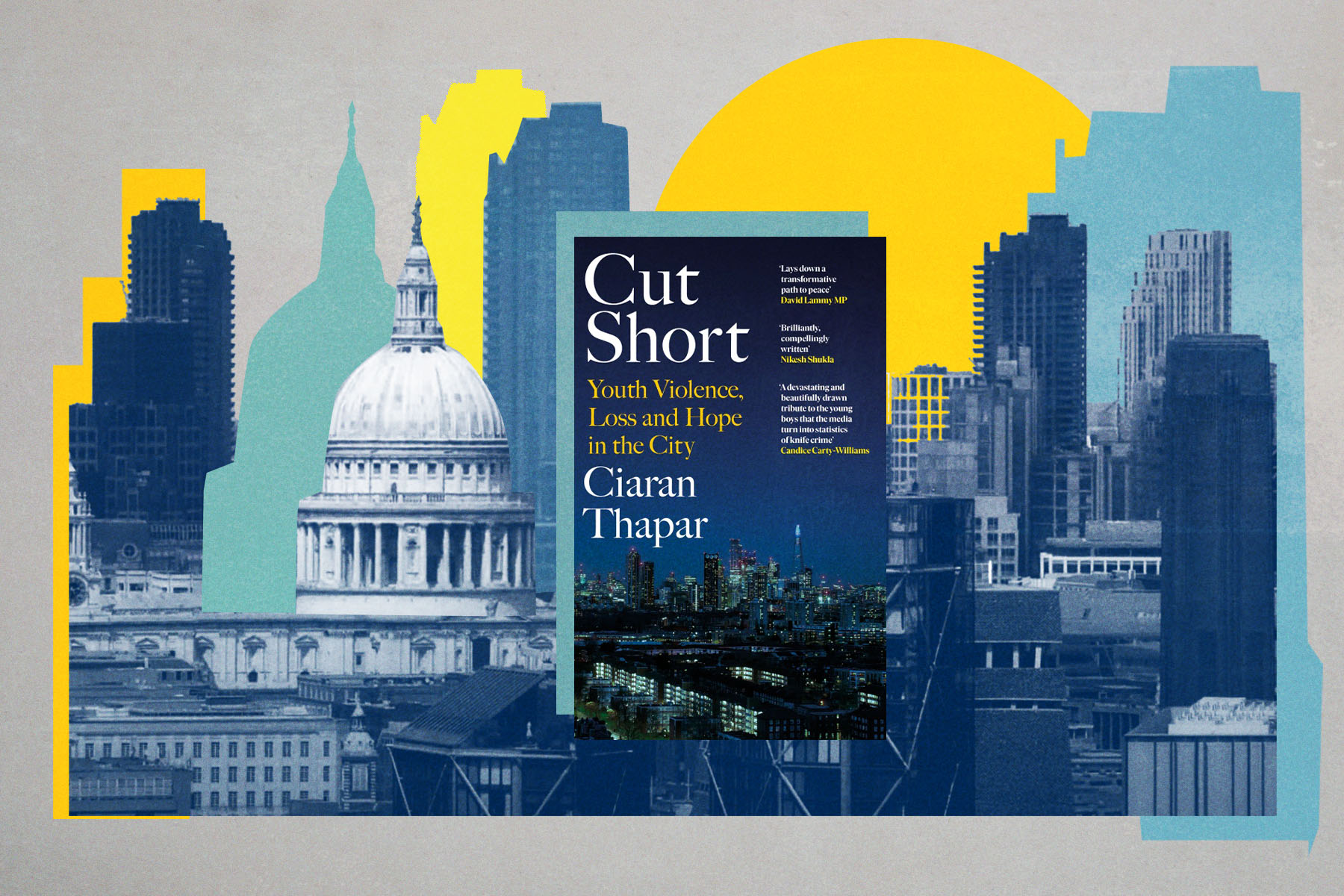
- Home |
- Search Results |
- ‘He holds the shotgun awkwardly’: an extract from Cut Short, on youth violence in London
‘He holds the shotgun awkwardly’: an extract from Cut Short, on youth violence in London
In Cut Short: Youth Violence, Loss and Hope in the City, author Ciaran Thapar explores the ways violence is perpetrated – and replicated – in urban communities. In this extract, a gatecrasher interrupts a funeral wake.
A teenage boy sprints through the front door of the community centre, darting into the foyer. Seeking a hiding place, his momentum carries him to the far side of the main room, where he dives beneath a defunct pool table.
The atmosphere is buzzing. People have gathered for a Nine Night: a Caribbean funeral wake on the ninth night after a death, a chance for friends and relatives to say their goodbyes in binding catharsis. Dancing, storytelling, singing, feasting and praying are commonplace. Tonight, people are remembering an elderly woman who lived a stone’s throw from the centre’s front door. The Nine Night has drawn a crowd.
Sat on the table in the main room is a framed, smiley photograph of the fallen, next to a cross and some tea lights. Reggae music plays from an old sound system. Some guests – children, grandchildren, friends, young and old – stand recounting fond memories and whispering short prayers; others queue up at a foldaway table to write messages in a book of condolences. In the kitchen, pots of Jamaican dishes like stew chicken and rice-and-peas sit on the counter. A circle of older men sits outside in the small garden, under the night sky, beside painted wooden pots filled with growing vegetables planted by local teenagers. They play dominoes while smoking, holding cups of white rum and bottles of Dragon Stout.
A few seconds after the boy’s entrance, with people beginning to stir, wondering who has burst the night’s ritualistic bubble, another boy enters the building. He heads through the foyer, stopping on reaching the main room. He is dressed in black tracksuit bottoms, a black-and-green Deliveroo jacket and a black moped helmet, its tinted visor clicked shut. From the look of his slight frame, he can’t be much older than sixteen or seventeen. He has a sawn-off shotgun. He holds the weapon awkwardly. His hands are bony, their bareness the only evidence of his dark skin.
Conversations stop. Like an audience at the theatre watching the arrival of a new character on stage, everyone turns in unison to face the intruder. The door to the men’s toilet bursts open and slams shut as someone dives inside to take refuge. Elders glare, angry at this ultimate violation. The boy wrapped in shadows beneath the pool table remains hidden from view, his life spared by the power of his community.
•
‘Rah!’ the faceless intruder blurts out. Thirty, forty pairs of eyes stare back at him. His helmet wobbles as he looks left, then right, as the cackle of an idle moped engine cuts into the room from outside. He holds the shotgun in his sweaty hands. He starts to walk backwards, turns round and comes face-to-face with Andre, a security guard standing in the foyer. Andre moves forward to tackle him, but another guard grabs Andre before he gets too close.
The intruder bursts out of the front door. Andre walks over and peers out. The boy’s trainers thud on the concrete before he jumps on to one of two mopeds, both carrying other masked riders. Andre grabs his phone and writes down the details of the moped, including its registration number.
White moped. Black helmet. Black and green jacket.
'The boy wrapped in shadows beneath the pool table remains hidden from view, his life spared by the power of his community'
The mopeds speed off, revving their engines as they go, flying over the speed bump. Andre watches their red rear lights zoom off into the night.
It has taken roughly 10 seconds from the moment the first boy hiding under the pool table ran into the community centre seeking refuge until the exit of the intruder. The same reggae song plays from the sound system in the main room. The same tea-light flames sway on the table.
Andre walks briskly into the staff office to ring an alarm to alert the police. In the main hall, whispers return to normal conversations. A few people hover by the pool table trying to comfort the boy underneath it, who remains knotted into a foetal position.
Andre heads outside. After a couple of minutes a police car with its sirens off turns into the road and whizzes towards where the men are standing.
‘Which way?’ the driver asks through the window.
Andre points north. The police car speeds off, slowing for the road bump.
Seventeen minutes later, during which time the stroke of midnight passes, an officer arrives at the centre in his car with a police dog. Andre is confused as to why there is a dog present. He tells the officer what happened. The policeman calls for backup, taking out his notepad to record the details.
Twenty-five minutes later, another police car arrives. Andre explains what happened again. Two of the officers walk inside and help to coax the boy out into the open from under the pool table. Looking like he has seen a ghost, the young man walks with the police silently through the foyer and out into the car park, where one officer opens the back door of their car for him to get in.
Some guests say their goodbyes and leave. But for others, the Nine Night cannot end. Family members and friends begin their remembrance again.
A little laughter, peace and prayer return to the centre.
What did you think of this article? Let us know at editor@penguinrandomhouse.co.uk for a chance to appear in our reader’s letter page.
Image: Alicia Fernandes/Penguin